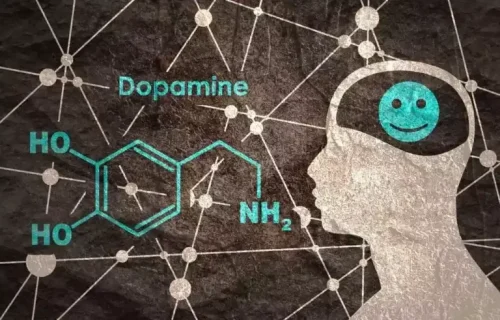
As for human beverages, though beer sales were down in 2020, continuing their long decline, Americans drank more of everything else, especially spirits and (perhaps the loneliest-sounding drinks of all) premixed, single-serve cocktails, sales of which skyrocketed. Right now we are lurching into another of our periodic crises over drinking, and both tendencies are on display at once. Since the turn of the millennium, alcohol consumption has risen steadily, in a reversal of its long decline throughout the 1980s and ’90s.
Social, occasional, casual, recreational, and moderate drinking: Are they all the same?
The act of drinking socially is considered an integral part of American society, but it’s been part of human civilization for millennia. Even if you’re not planning a night where you’re going to get drunk, it’s considered socially acceptable to have a beer or two or a glass of wine with dinner when you’re hanging out with friends. 2We also conducted the meta-analysis omitting studies that defined solitary drinking as anything other than drinking while alone, and results were similar. Alcohol is considered a drug because it depresses the central nervous system and can disrupt mental and motor skills. Unhealthy alcohol use can be harmful physically, emotionally, and economically.
Starting with a Primary Care Provider
Consequently, most studies of person-level moderators of alcohol’s effects create atypical conditions. Without considering social context, investigators may have struggled to identify potential moderators of the reinforcing effects of alcohol (Sayette, 1993a). Group settings offer a unique chance to identify individual differences that moderate the reinforcing effects of alcohol, factors that might be missed when testing subjects in isolation (see Doty & de Wit, 1995). In fact, many of the pleasant effects of alcohol that confer increased risk for alcoholism (e.g., increased sociability) must be studied in a group setting (Cooper, 2002).

Individualized, evidence based treatment, to fit your needs.

If problem drinking was an issue in your home as you were growing up, you are at greater risk of developing a problem with alcohol. To learn more about alcohol treatment options and search for quality care near you, please visit the NIAAA Alcohol Treatment Navigator. Alcohol https://ecosoberhouse.com/ use disorder can include periods of being drunk (alcohol intoxication) and symptoms of withdrawal. If you’re thinking about suicide, are worried about a friend or loved one, or would like emotional support, the Lifeline network is available 24/7 across the United States.

It also includes binge drinking — a pattern of drinking where a male has five or more drinks within two hours or a female has at least four drinks within two hours. 7Results of the study also indicated that alcohol consumption attenuated negative affect (Sayette et al., 2012a). 4Subsequent research by Wilson and colleagues that used more moderate doses of alcohol than in the earlier studies by Wilson and Abrams (1977; Abrams social drinking and drinking problem & Wilson, 1979) also failed to observe expectancy effects (e.g., Sayette, Breslin, Rosenblum, & Wilson, 1994). More broadly, as research has accumulated, the initial effects of placebo beverages to reduce anxiety have been hard to replicate (Greeley & Oei, 1999). Contact your primary care provider, health insurance plan, local health department, or employee assistance program for information about specialty treatment.
More often, people try to quit or cut back over time, experience recurrences, learn from them, and then continue on their recovery journey. For many, continued follow-up with a treatment provider is critical for overcoming alcohol problems. The provider can help adjust the treatment plan and aid long-term recovery. If you have any of these symptoms, alcohol may already be a cause for concern.
- The groups for family and friends listed in the “Resources” section may be a good starting point.
- Alcohol of any amount can cause a relapse, and you can potentially lose all your hard work during recovery.
And yet, if we use alcohol more and more as a private drug, we’ll enjoy fewer of its social benefits, and get a bigger helping of its harms. There is no harm in at least checking out an abstinence-based program such as Alcoholics Anonymous, SMART Recovery®, or Women for Sobriety meetings. Each of these recovery programs has members who are HFAs as well as lower functioning alcoholics. Meetings are held in person as well as online and are typically listed on their websites. It is most important for alcoholics to realize that they are not alone and that millions of sober alcoholics now have fulfilling lives without drinking.

Below is a list of some of the providers who are typically involved in alcohol treatment and the type of care they may offer. The benefits of social drinking are similar to those of moderate alcohol consumption. However, people must make informed choices about their alcohol consumption while considering their situation.
Notably, the vast majority of prior laboratory alcohol administration studies have asked young adults to consume alcohol while alone (Fairbairn & Sayette, 2014). This is a highly unusual way for most young adults to experience alcohol intoxication, and this solitary setting precludes measuring many of the subjectively pleasant effects of alcohol that confer increased risk for alcohol misuse (e.g., increased sociability) (Creswell et al., 2012). Use of laboratory social drinking paradigms may permit laboratory research to become even more informative in predicting risk to develop AUD. In two studies, solitary drinking failed to predict later psychosocial problems, but this may be because it was entered into regression models that included several other predictor variables. Using the group formation project data set, we examined the impact of personality traits on alcohol response in a social context (Fairbairn et al. 2015c).
Social Drinking vs. an Alcoholic
Just like any other medical condition, people with substance use disorders deserve to have a range of treatment options available to them. Scientists are working to develop a larger menu of pharmaceutical treatments that could be tailored to individual needs. Given the diverse biological processes that contribute to AUD, new medications are needed to provide a broader spectrum of treatment options. 12-step facilitation therapy is an engagement strategy used in counseling sessions to increase an individual’s active involvement in 12-step-based mutual-support groups.